At VRWS 2023, David Robles from Google delivered a subtly powerful presentation, revealing two significant upgrades to Google’s Vacation Rental search capabilities. These changes mirror a crucial shift in consumer behavior: an increasing tendency to consider hotels and vacation rentals during trip planning. With 25% of booked nights in Europe now in short-term rentals, the market is clearly evolving.
Google has smartly responded by adding vacation rental options to its Hotel search tab results, recognizing that modern travelers appreciate having a broad spectrum of options at the outset of their planning. This integration facilitates a smoother decision-making process, allowing travelers to compare their options without being forced into a premature decision.
Furthermore, Robles introduced a potent comparison tool, a potential game-changer for both travelers and rental managers. This tool collates prices for each property across various platforms, from Online Travel Agencies (OTAs) and direct booking sites to Property Management Systems (PMSs) and other channels. However, this innovation brings with it a new set of challenges. Our team’s preliminary testing has revealed significant price discrepancies for some properties across different platforms, with direct booking sites not always offering the lowest rates. This inconsistency introduces a risk for vacation rental managers. If their properties are priced higher on direct booking sites, they could lose potential customers to OTAs where the same properties might be listed for less.
While some might think Booking.com is slow to innovate, its strategy of listing all kinds of properties on one website is actually smart. The important thing then is to make it easy for travelers to find what they’re looking for among the many options.
Therefore, while these Google innovations — currently available in the US and UK and set to reach Europe in 2024 — promise greater visibility and consumer choice, they also underscore the need for rental managers to monitor their pricing strategies across all platforms closely. For more information on Google’s vacation rental strategy, see my article from last May, when I summed up other insights from David Robles.
Google’s mission for vacation rental managers
Here’s how the company explains its mission to vacation rental managers:
Google is where your future guests go to discover, research, and plan their travel.
Throughout the journey, Google makes connections between people, places and providers, so that users can feel good about their travel decisions & confident in experiencing, sharing, and remembering their destination.
Google Revisits Hotels vs Vacation Rentals
A Long-Standing Overlap in Traveler Preferences
The narrative of a recent convergence between hotels and vacation rentals might be misleading, as the intersection in traveler preferences has long existed. Data from a Google and Kantar survey emphasizes this enduring overlap:
- Lodging Types Considered Before Booking Vacation Rentals:
- Hotels: 52%
- Bed & Breakfast: 25%
- Camping: 13%
These statistics don’t signify a new trend but illuminate a long-standing reality: travelers often view hotels and vacation rentals as a spectrum of options to satisfy their accommodation needs.
Google Search Data: A Mirror to Ingrained Behaviors
The insights gleaned from Google search behavior further attest to this ingrained substitutability:
- “Places to Stay” Queries:
- A notable 70% of users consider vacation rentals.
- Regional Hotels Queries:
- A significant 40% of users are open to vacation rentals as well.
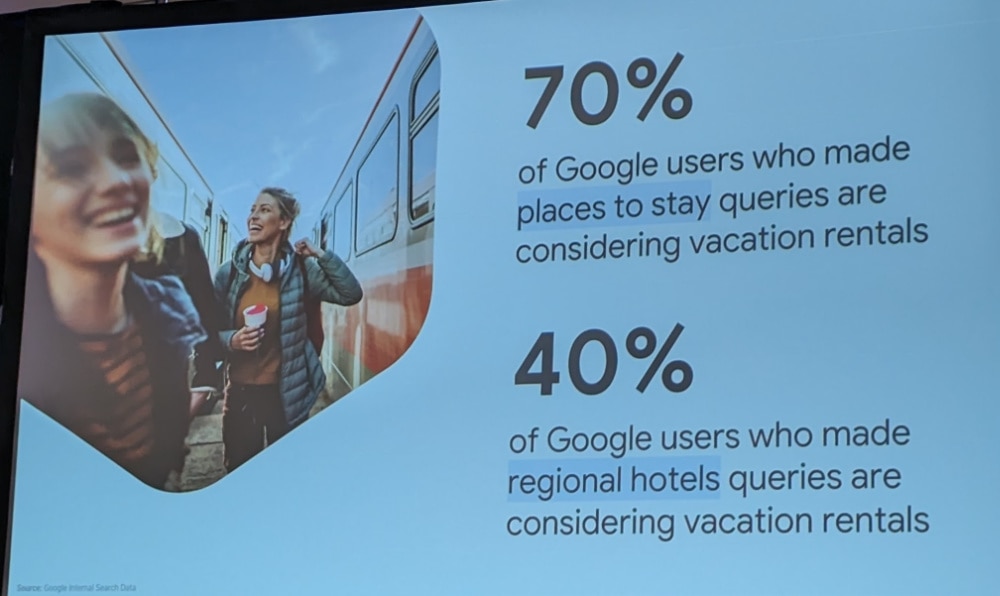
This data doesn’t necessarily indicate a shift but reflects a long-standing behavior where hotels and vacation rentals have been close and substitutable options in a traveler’s mind. Maybe travelers were already open to it, but the increase in short-term rental supply has made the option doable.
The Dynamics of Discovery
The paths to discovering and booking accommodations also shed light on this inherent substitutability:
- How Travelers Discover Vacation Rental Listings:
- Discovered on the booking platform: 37%
- Came across while browsing the internet (e.g., search engines): 29%
- Were already familiar with the accommodation: 15%
The dominance of discovery on platforms indicates that travelers’ decisions aren’t firmly compartmentalized but are influenced by the array of options presented during the search process.
Does the Hotels vs Vacation Rentals opposition mainly exist in our minds?
While to travelers, the distinction between hotels and vacation rentals might often be a matter of context rather than a strict preference, the industry dynamics have historically painted a different picture:
- Sectoral Opposition: The emergence of booking platforms specializing in one property type often fueled a narrative of opposition between hotels and vacation rentals.
- Hidden Commonalities: The perceived dichotomy, driven by industry competition, overshadowed the common ground that both types of accommodations share in the eyes of many travelers.
- Intense Lobbying Efforts: The hotel industry’s lobbying against vacation rentals isn’t just a defensive maneuver but a clear acknowledgment of the threat posed by vacation rentals as a substitute.
- Flexible Perceptions: The distinction between different types of lodging is becoming less rigid, with travelers exhibiting greater flexibility and openness in their accommodation choices.
- Exploratory Booking Behavior: The majority of bookings result from discovery on platforms or through browsing, rather than from prior familiarity with a specific property.
How Google is changing its tools to adapt to how travelers associate hotels and vacation rentals
David Robles Fosg articulated the compelling reasons behind this strategic move towards the convergence of hotels and vacation rentals:
- Creating Meaningful Connections: Google aims to be the bridge that connects people, places, and providers in a seamless fashion. By doing so, it ensures that users can make travel decisions they feel confident and positive about.
- Catering to Diverse Preferences: Vacation rental bookers are not a monolith. They have diverse preferences, and their decision-making process involves considering a range of lodging options along with various price and non-price factors. Google’s integrated search caters to this diversity.
- Enabling Informed Choices Across Categories: By introducing features that allow users to compare choices across different lodging categories, providers, and prices, Google is fostering an environment where informed choice is not just a possibility but a standard expectation.
Integrated Search Experience: Vacation Rentals are now featured within the Hotels tab
A couple of years ago, Google introduced a separate“Vacation Rentals” tab (“Holiday Rentals” in Europe). It allowed the company to display the vacation rental supply sent out by partnering channel managers, while making travelers aware that Google had started offering this travel option.
image
Now, an interesting convergence between hotel and vacation rental offerings. Google has now started displaying vacation rental and hotel options together on their Travel search map. This is not the Google Maps we are all familiar with, but a specialized map interface you encounter when using Google Search for phrases like “places to stay in Barcelona.” This unified view is a testament to the evolving preferences of travelers, who often consider a spectrum of lodging options before making their decision.
Enhanced Price Comparison Across OTAs
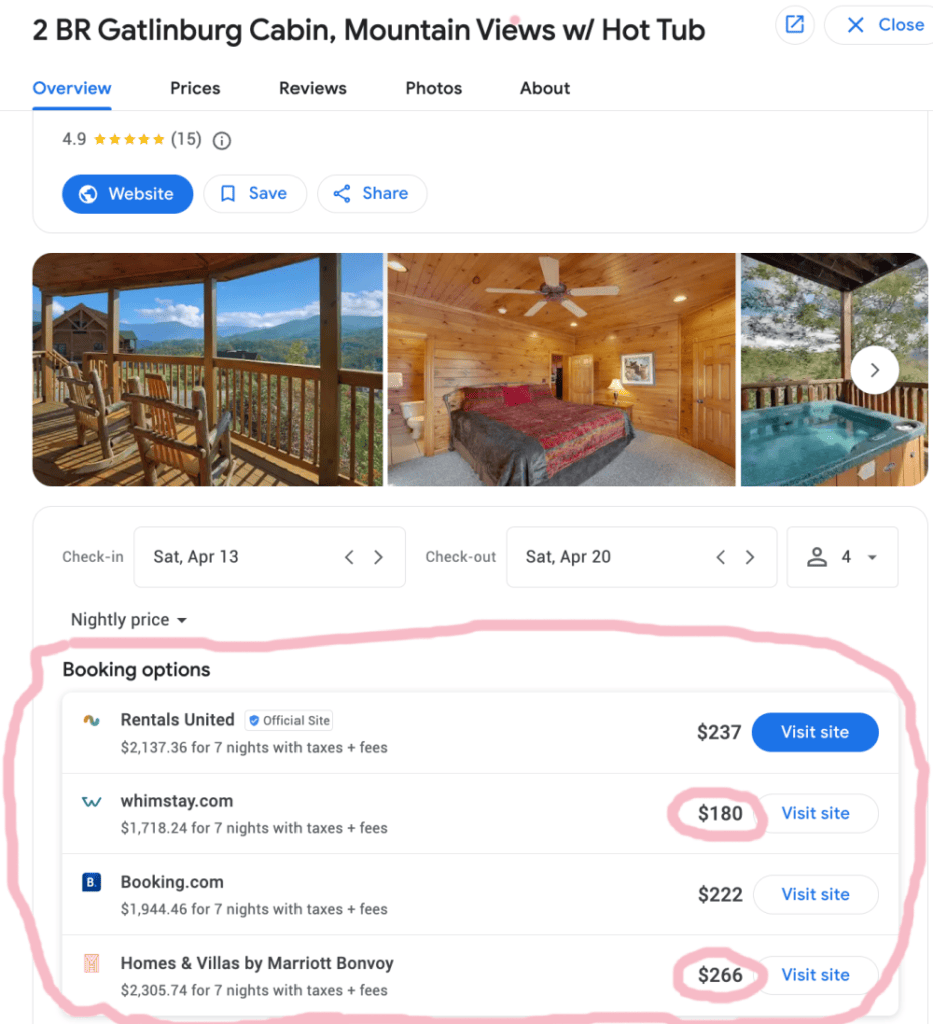
The second feature is a robust comparison tool that displays prices for each vacation rental across multiple Online Travel Agencies (OTAs), direct booking sites, PMSs online booking pages, and other channels it is listed on. This level of transparency not only empowers travelers to make informed decisions but also encourages a competitive landscape where the best value proposition stands out.
These innovations signify a paradigm shift in how we will interact with travel search engines in the future. Google’s emphasis on integration, transparency, and user empowerment aligns with the evolving demands of the modern traveler. For property managers and vacation rental owners, adapting to these changes and optimizing their online presence accordingly will be crucial in staying competitive and visible in this new era of travel search.
Google’s Strategy: A Validation of Booking.com’s Integrated Approach
The Vacation Rental World Summit (VRWS) 2023 in Barcelona shed light on Google’s latest search innovations, particularly in how they present vacation rentals and hotels. This approach is not entirely new to the industry; it mirrors a strategy that Booking.com has been experimenting with and refining for years.
Booking.com’s Pioneering Approach
Booking.com has long been a proponent of the integrated approach, offering a diverse range of accommodations, from hotels to B&Bs, aparthotels, villas, and more, all under one digital roof. Their objective has been to cater to the myriad preferences of travelers, understanding that accommodation choices can vary significantly based on numerous factors like the purpose of the trip, the need for privacy, the desire to cook, or even the mood of the traveler.
The Challenge of Prediction
A key challenge that Booking.com faced was predicting what kind of accommodation a user would prefer. Their solution was to analyze users’ past search and booking patterns, leveraging this data to present a dynamic mix of property types that might pique the interest of the searcher. However, as any seasoned traveler knows, past behavior isn’t always indicative of future preferences, especially in the fluid world of travel.
Google’s Validation and Enhancement
Google’s recent innovations, as unveiled at VRWS 2023, seem to validate Booking.com’s integrated approach. By displaying vacation rentals and hotels together in their Travel search map, Google acknowledges the diverse and evolving preferences of modern travelers. This integrated view aligns with the understanding that travelers’ needs are multifaceted and subject to change.
Moreover, Google enhances this approach by offering robust comparison tools and filters. These features allow users to easily sift through options, compare prices across different OTAs, and narrow down their choices based on their specific preferences and requirements. This level of customization and flexibility is a step beyond what Booking.com has offered, propelling the integrated approach into a new era of user empowerment and choice.



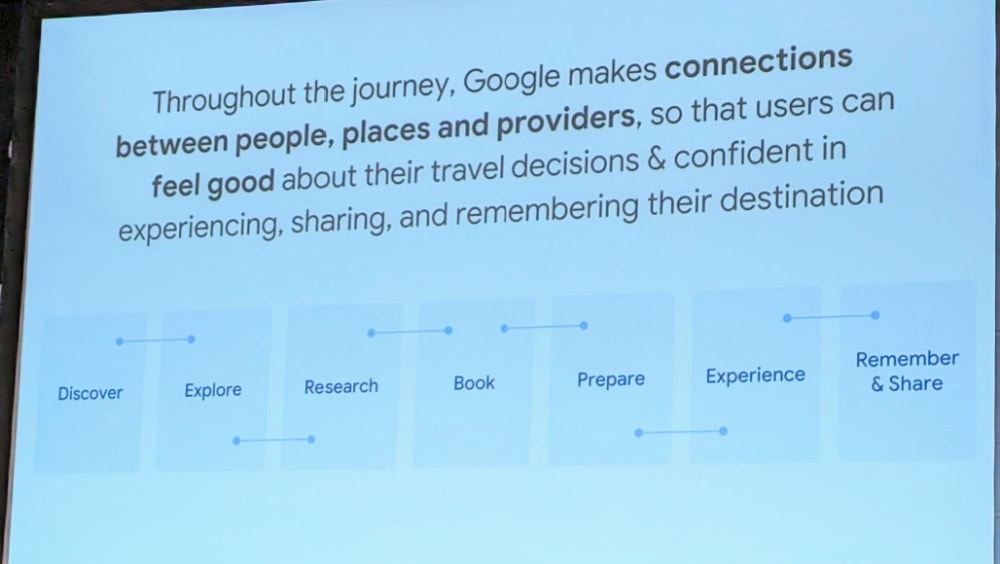
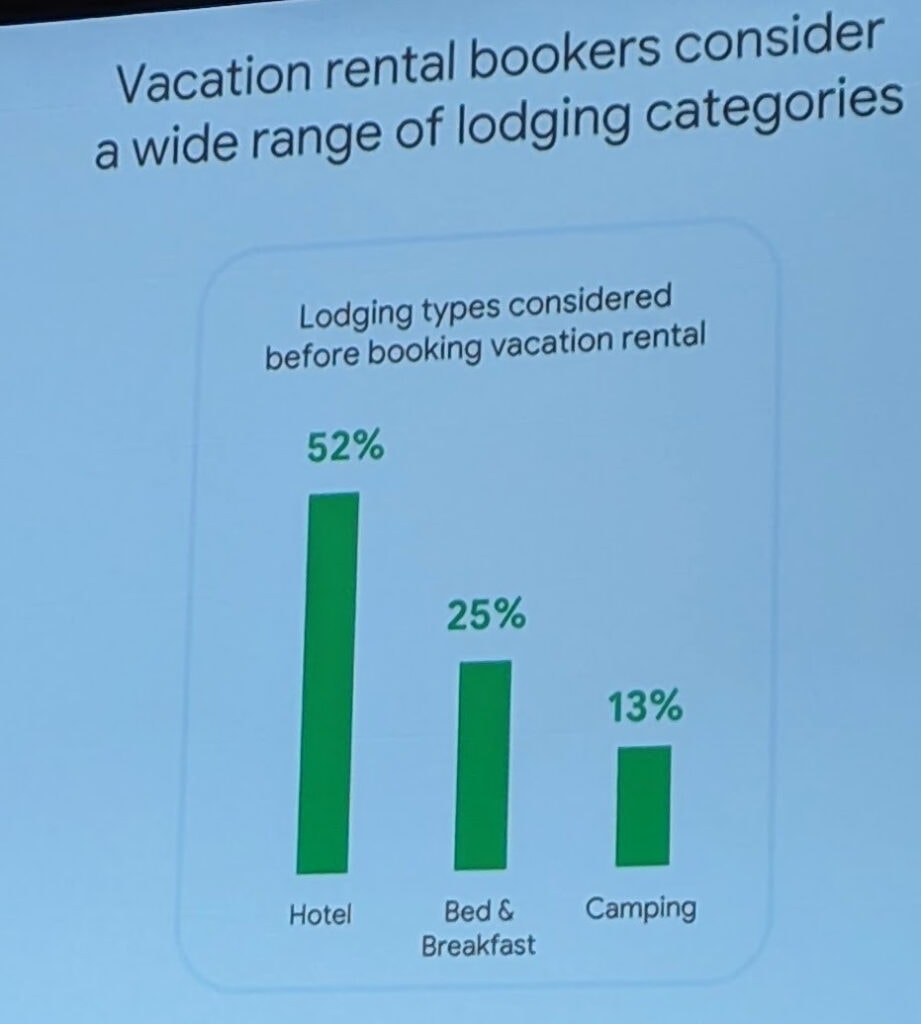
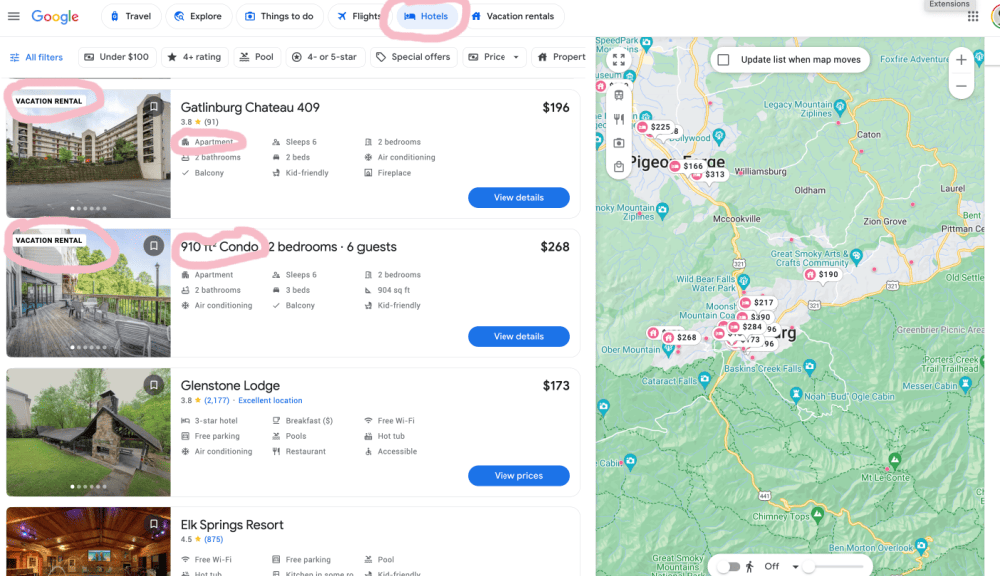




![Trump-Era Policies Fuel Travel Uncertainty: Fewer Canadians, Europeans to U.S.—Fewer Americans to Europe [Early Data]](https://www.rentalscaleup.com/wp-content/uploads/2025/04/Trump-Era-Policies-Fuel-Travel-Uncertainty-Fewer-Canadians-Europeans-to-U.S.—Fewer-Americans-to-Europe-Early-Data-150x150.jpg)
